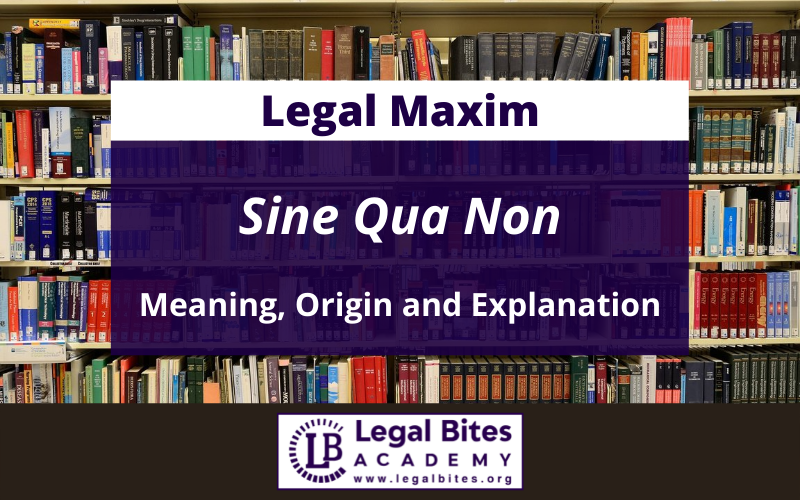Pari Passu: Origin, Meaning and Explanation
This article titled ‘Pari Passu: Origin, Meaning and Explanation’ is written by Sahajpreet Bhusari and discusses the legal maxim of Pari Passu. I. Origin and Meaning Pari Passu is a legal term of Latin origin. In Latin, the maxim literally means ‘on an equal footing’.[1] II. Explanation and Application This is a principle that means that all unsecured creditors… Read More »
;
This article titled ‘Pari Passu: Origin, Meaning and Explanation’ is written by Sahajpreet Bhusari and discusses the legal maxim of Pari Passu. I. Origin and Meaning Pari Passu is a legal term of Latin origin. In Latin, the maxim literally means ‘on an equal footing’.[1] II. Explanation and Application This is a principle that means that all unsecured creditors (including creditors) in bankruptcy proceedings have the right. This is one of the most basic principles of...
This article titled ‘Pari Passu: Origin, Meaning and Explanation’ is written by Sahajpreet Bhusari and discusses the legal maxim of Pari Passu.
I. Origin and Meaning
Pari Passu is a legal term of Latin origin. In Latin, the maxim literally means ‘on an equal footing’.[1]
II. Explanation and Application
This is a principle that means that all unsecured creditors (including creditors) in bankruptcy proceedings have the right. This is one of the most basic principles of bankruptcy law but can be changed by agreement. This is a loan agreement that gives multiple lenders equal rights to the assets used to secure a loan.
If the borrower fails to meet the payment terms, the asset can be sold and each lender receives an equal share of revenue at the same time. Pari passu means treating essentially all parties equally. This is unlike most contracts with multiple lenders, which usually establish a repayment hierarchy that gives a particular lender the highest priority in terms of payment timing and amount.
III. Illustration
Paris Passu is how to handle unsecured creditors in the event of bankruptcy. All unsecured creditors are paid at the same time with the same percentage of their debt.
IV. Case Laws
In International Coach Builders Ltd v. Karnataka State Financial Corpn.[2] Supreme Court observed that “Pari Passu” means “equal, equal, no preference”. The rights of the holder of the pari passu fees shall operate equally, temporally and in power, with the rights of secured creditors.
The official liquidator, acting as the worker’s representative, responsible for making such a pari passu charge shall be entitled to represent the worker on an equal basis with the rights of secured creditors. guarantee.
References
[1] Pari Passu, Available Here.
[2] (1994)81 Comp Cas 19.





